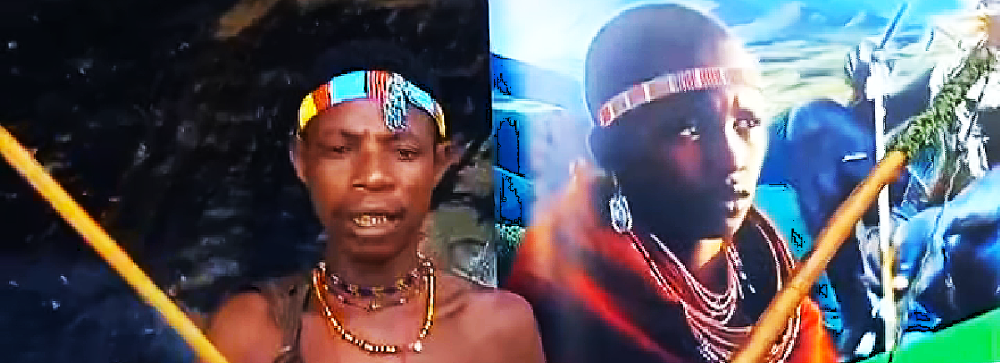Climate change is proving to be no rhapsody for the bohemian Hadza hunters and gatherers in northern Tanzania whose small population is further being pushed to a brink of extinction as a result.
This is because prolonged drought in Northern Tanzania, invasion of alien weeds and exotic human activities cause the Hadza’s natural food and water sources to rapidly diminish.
But even worse, the Hadza men may no longer even be able to reproduce offsprings because getting a wife is even more difficult now as the items used as dowries have also become scarce due to climate change.
“In order to get a woman, young Hadza men are required to pay a dowry package consisting of honey, a hunted monkey and an eland,” explains Ng’o Koko Msafiri.
Ng’o Koko is a young Hadzabe who lives in the remote wilderness of Qandet in the Baray Ward of Mang’ola division, around Lake Eyasi in Karatu District.
According to Ng’o Koko, most of the natural vegetation species have dried up in the area.
And due to that bees have also disappeared which means honey has also become scarce.
“In our tradition, raw honey is the most important component of the dowry package, missing that no family will allow their daughter to be taken away,” Koko maintains.
As far as he is concerned, they may now be forced to elope with girls in the bush, something which was previously unheard of in their community.
But it is not just honey, the small animals that the Hadza usually hunt for food have also vanished from the wilderness.
“Monkeys, rodents, and elands, that we always depend on for food have all gone,” add some local Hadza elders in Lake Eyasi basin.
They were speaking to members of the Media Aid for Indigenous and Pastoralist Community (MAIPAC), who were conducting surveys on how the bushmen are managing to survive against all odds as effects of climate change bite.

The Hadza, (singular Hadzabe) are an isolated Khoisan hunter-gatherer indigenous ethnic group, primarily based in Baray, an administrative ward within Karatu District in southwest Arusha Region and parts of Ngorongoro Conservation Area.
The Hadza, whose total population is less than 3000, also live in remote sections of the Vast Yaeda valley in Mbulu District of Manyara, which stretches to as far as Singida.
Hadza are said to be one of the last of the hunter-gatherer societies remaining on Earth, the others being the bushmen of Kalahari in South Africa.

